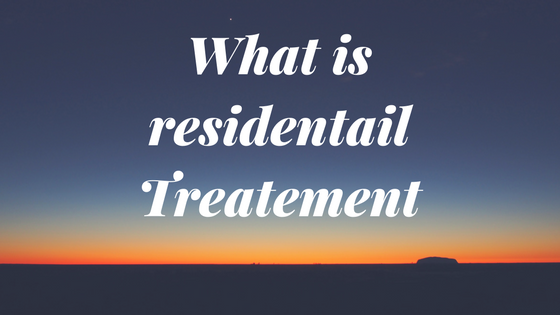What Is Residential Treatment?
A residential treatment facility is essentially a fancy name for a live-in rehab clinic. Residential treatment facilities offer a number of rehabilitative supports for drug addicts and recovering drug users, mental health patients and other victims of behavioral health problems.
For the duration of the treatment, patients will live away from home and be expected to stay at the residential treatment center. They will be monitored by trained professionals who will ensure that their health is optimized for the duration of their stay.
Residential treatment can be good for several types of situations. If an addict doesn’t respond properly to outpatient relapse and instead relapses or otherwise comes to harm, they might need to consider residential treatment. Some addicts are able to get through the detoxification process but need follow-up treatment to build a stable foundation in which to return to society.
A good residential treatment center will share a similar itinerary and structure with other centers. They should provide addicts with:
- A personal evaluation to determine the patient’s physical and mental health
- An extensive analysis to determine the individual’s needs in terms of their behavior, medical health, social skills, education
- A treatment plan that prioritizes the above information
- A chance to integrate the addict’s family in the recovery process, through telephone or video if personal contact is not possible
- Nonphysical methods of helping the patient cope with their behavioral issues
It’s best to do some research first to identify which residential treatment center is best for you or your loved ones.
What Can I Expect From Residential Treatment?
Residential treatment centers offer a number of different supports. These can include:
- Medication-assisted treatment for people undergoing severe withdrawal or other intensive experiences related to recovery. The clinic might supply prescription drugs such as Ativan or Xanax. These medications inhibit anxiety and can ease the pain of withdrawal symptoms for those detoxing from heavy drug addictions.
- Therapy is given after the main withdrawal phase, and is a key part of rehabilitation. Therapy helps a patient cope with readjusting to life as a sober individual.
- Individual therapy is a one-on-one conversation between the patient and a therapist that helps identify specific needs and can help structure a better foundation for furthering their recovery.
- Family therapy involves including the parents, siblings or other family members of the patient. Family therapy can provide extra clarity or a different perspective and can help repair damaged bonds between family members.
- Group therapy takes place in a group led by a licensed professional. They allow groups of addicts to share and explore different aspects of their own experience, and help addicts open up about topics they may have been apprehensive about sharing with others.
- Nutritional supplementation helps to bring an addict’s stores of vitamins and minerals back to a healthy level. Nutritional deficiency is often ignored in regards to drug addiction, despite it playing a huge part in the recovery of the addict.
Finding The Right Residential Treatment Facility
You should do as much research as possible to determine what facility best suits you.
- Make sure the programs you’re considering are licensed, and that their state-specific licenses apply to your needs.
- Doing research online allows you to read personal reviews from patients and the families of patients who have attempted treatment with specific facilities. This also allows you to see if any facilities have been reported for health or safety violations.
- You can find a center that’s close to home. Being near home and family is a reassuring aspect for many addicts hoping to go through treatment.
Does Los Angeles Have Residential Treatment Resources?
California is known to be home to some of the best rehab facilities in the United States. Since California’s drug policy is much more extensively attended to than those of other states, the availability of treatment is much higher. There are all sorts of different facilities available to treat addicts.
California’s residential rehab centers are all run by medical professionals who are certified to help with addiction recovery or mental health. They will provide the addict with the necessary care and support to make their way through recovery.
To enroll in a residential rehab facility, the patient must fill out an application and wait for approval. After approval, they will be admitted to the facility and will only bded at the facility.
Further Information
For a more comprehensive list of rehab facilities in Los Angeles, see here. Doing a bit of research before choosing the facility that you or your loved ones apply for is very important in ensuring you have the best possible experience.
California residents are very lucky to live in a state with such a refined policy on drug treatment and recovery. There are treatment centers available for all sorts of people, and many alternative treatments for those who don’t respond to traditional methods.




